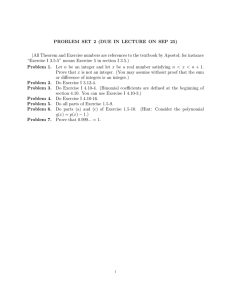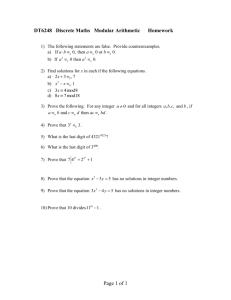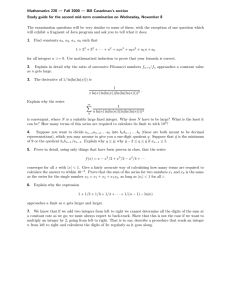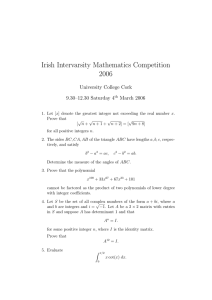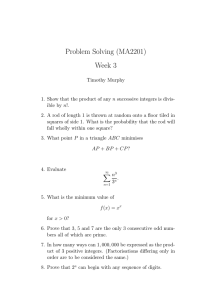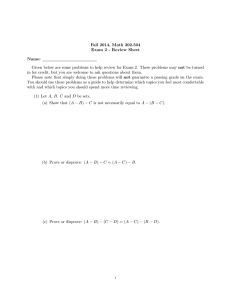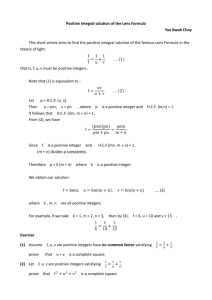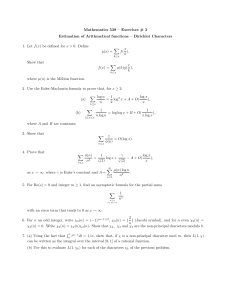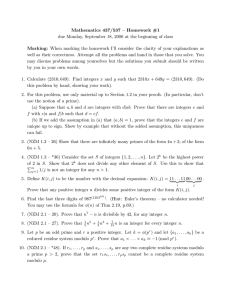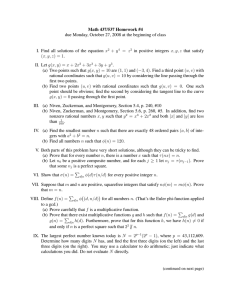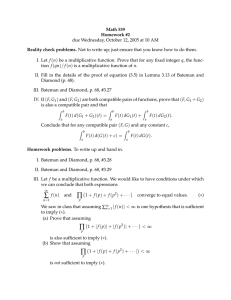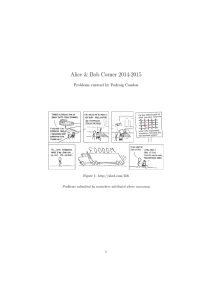Putnam Practice Problems #4 November 23, 2010 (in no particular order)
advertisement
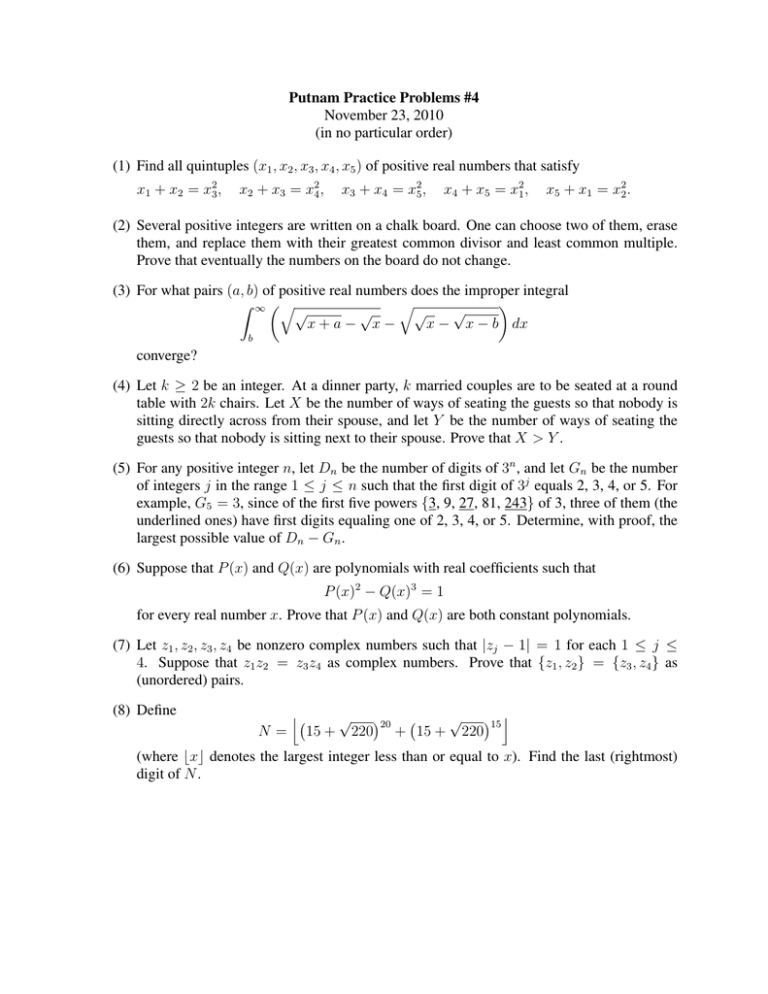
Putnam Practice Problems #4
November 23, 2010
(in no particular order)
(1) Find all quintuples (x1 , x2 , x3 , x4 , x5 ) of positive real numbers that satisfy
x1 + x2 = x23 ,
x2 + x3 = x24 ,
x3 + x4 = x25 ,
x4 + x5 = x21 ,
x5 + x1 = x22 .
(2) Several positive integers are written on a chalk board. One can choose two of them, erase
them, and replace them with their greatest common divisor and least common multiple.
Prove that eventually the numbers on the board do not change.
(3) For what pairs (a, b) of positive real numbers does the improper integral
Z ∞ q
q
√
√
√
√
x+a− x−
x − x − b dx
b
converge?
(4) Let k ≥ 2 be an integer. At a dinner party, k married couples are to be seated at a round
table with 2k chairs. Let X be the number of ways of seating the guests so that nobody is
sitting directly across from their spouse, and let Y be the number of ways of seating the
guests so that nobody is sitting next to their spouse. Prove that X > Y .
(5) For any positive integer n, let Dn be the number of digits of 3n , and let Gn be the number
of integers j in the range 1 ≤ j ≤ n such that the first digit of 3j equals 2, 3, 4, or 5. For
example, G5 = 3, since of the first five powers {3, 9, 27, 81, 243} of 3, three of them (the
underlined ones) have first digits equaling one of 2, 3, 4, or 5. Determine, with proof, the
largest possible value of Dn − Gn .
(6) Suppose that P (x) and Q(x) are polynomials with real coefficients such that
P (x)2 − Q(x)3 = 1
for every real number x. Prove that P (x) and Q(x) are both constant polynomials.
(7) Let z1 , z2 , z3 , z4 be nonzero complex numbers such that |zj − 1| = 1 for each 1 ≤ j ≤
4. Suppose that z1 z2 = z3 z4 as complex numbers. Prove that {z1 , z2 } = {z3 , z4 } as
(unordered) pairs.
(8) Define
N=
j
15 +
√
√ 15 k
20
220 + 15 + 220
(where bxc denotes the largest integer less than or equal to x). Find the last (rightmost)
digit of N .
